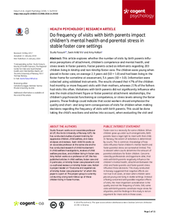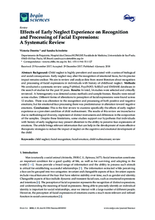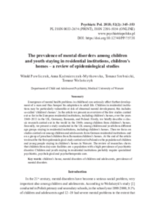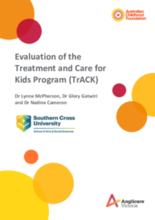Displaying 261 - 270 of 525
This study explored whether trust in caregiver support and communication about experiences with primary caregivers, are associated with Child Welfare System (CWS) youngsters’ depressive symptoms and/or self-harm.
This article explores whether the number of visits by birth parents influence perceptions of attachment, children’s competence and mental health, and stress levels in foster parents.
This study evaluates the ‘Nurturing Attachment’ program in the UK, a Dyadic Developmental Psychotherapy intervention for adoptive families.
The present study concerning domestic adoption explored the adjustment of 37 adolescents and 22 emerging adults (with age ranging between 11 and 18 and 18 and 24 years, respectively), adopted through an Italian form of open adoption, and analyzed the quality of adoptive family relationships and adoptees' attachment as possible moderating variables in the relation between multiple pre-adoptive risk factors and adoptees' outcomes.
The purpose of this study was to assess the perspective of social service providers who participated in a nine-month, trauma-informed care (TIC) training intervention on 1) their capacity to make referrals to trauma-specific services following the training, and 2) factors external to the training intervention that supported or hindered their ability to link traumatized youth with services.
This article reviews and analyzes data from recent literature about recognition and processing of facial expressions in individuals with history of childhood neglect.
This article presents an overview of the few studies carried out so far in the European residential institutions, including children’s homes, over the years 1940–2011 in the UK, Germany, Romania, and Poland.
This paper discusses the results of a qualitative study on adult care leavers in Flanders (Belgium).
The Treatment and Care for Kids (TrACK) program is a therapeutic home-based care program providing intensive intervention for children and young people with complex needs in Australia. The findings of this evaluation demonstrate that TrACK produces tangible and lasting results for children.
This paper provides an overview of the principles of Trauma informed care, describing how service user experiences of adversity and/or trauma relate to the child welfare system in Northern Ireland and outlining international and national policy and practice developments in creating more Trauma informed child welfare systems.





